Guidance on Fair Recruitment Practices for Temporary Migrant Workers
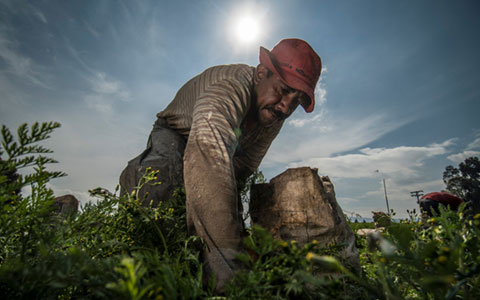
Based on the ILO Guiding Principles and Operational Guidelines for Fair Recruitment, and the Department of Labor’s H-2 visa regulations, the Guidance on Fair Recruitment Practices for Temporary Migrant Workers encourages countries and employers participating in H-2A and H-2B visa programs to implement best practices. This non-binding guidance issued together with the U.S. Department of State, and the U.S. Agency for International Development is intended to assist governments of countries of origin, recruiters, and employers in achieving fair recruitment of workers bound for employment in the United States under the H-2 visa programs. It can also serve as a key resource for retailers and other downstream supply chain actors to understand how to identify, mitigate, remedy and ultimately help prevent abuses in the worker recruitment process by actors in their supply chains who use the H-2 visa program.
Comply Chain
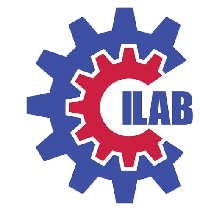
The Bureau of International Labor Affairs’ (ILAB) Comply Chain is a framework intended to help companies build or improve a social compliance system to avoid the violation of the U.S. trade law prohibiting importation of goods made in whole or in part with forced labor. In this era of globalization, the production of goods in foreign countries has increased rapidly and global government oversight of labor rights has not always kept up. Comply Chain helps responsible businesses navigate the legal, moral, and public relations risks of forced labor exploitation in global supply chains.
The Better Trade Tool
The Better Trade Tool empowers users to advance efforts in supply chain transparency as well as strategic sourcing priorities. This innovative tool integrates existing reporting developed by ILAB with U.S. import global trade data, including Harmonized Tariff Schedule codes. The Better Trade Tool is intended to serve as a resource for users interested in learning about labor exploitation risks — specifically child labor and forced labor — in global supply chains.
International Child Labor and Forced Labor Reporting
List of Goods Produced by Child Labor or Forced Labor
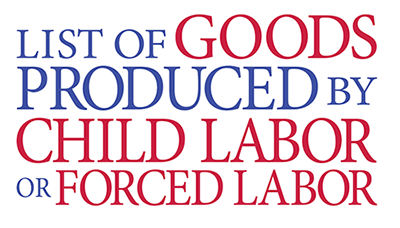
ILAB maintains a biannual list of goods and their source countries which it has reason to believe are produced by child labor or forced labor in violation of international standards, as required under the Trafficking Victims Protection Reauthorization Act (TVPRA) of 2005 and subsequent reauthorizations.
List of Products Produced by Forced or Indentured Child Labor
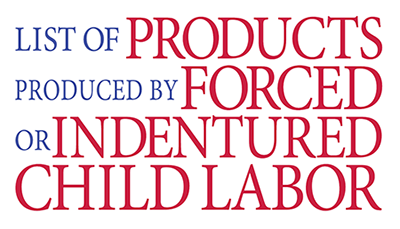
ILAB maintains a periodic list of products and their source countries which the bureau has a reasonable basis to believe are produced by forced or indentured child labor, pursuant to Executive Order 13126. This List is intended to ensure that U.S. federal agencies do not procure goods made by forced or indentured child labor. Under procurement regulations, federal contractors who supply products on the List must certify that they have made a good-faith effort to determine whether forced or indentured child labor was used to produce the items supplied.
Findings on the Worst Forms of Child Labor Report

ILAB's annual Findings on the Worst Forms of Child Labor focuses on the efforts of certain U.S. trade beneficiary countries and territories to eliminate the worst forms of child labor through legislation, enforcement mechanisms, policies, and social programs. The legislation mandated for this report requires that countries fulfill commitments to eliminate the worst forms of child labor to be eligible for specific U.S. trade preference programs. It also requires the U.S. Secretary of Labor to issue annual findings on beneficiary country initiatives to implement these commitments.
Resources Across the U.S. Government Interagency
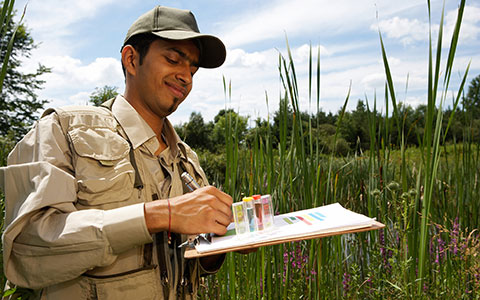
Executive Order 14017 on America’s Supply Chains
On February 24, 2021, the President signed E.O. 14017, directing a whole-of-government approach to assessing vulnerabilities in, and strengthening the resilience of, critical supply chains.
- 100-Day Review Reports as Directed under Executive Order 14017
- Executive Order on America’s Supply Chains: A Year of Action and Progress Report
U.S. Customs and Border Protection Supply Chain Due Diligence Fact Sheet
U.S. Customs and Border Protection (CBP) works diligently to prevent goods manufactured by prohibited forms of labor from being imported into the U.S. by enforcing the withhold release orders and findings of 19 U.S.C. 1307.
- CBP Binding Rulings Program – Customs Rulings Online Search System (CROSS) is a program where administrative rulings are available on prospective transactions. For additional information, you may refer to 19 C.F.R. 177 and to the customs rulings online search system – CROSS.
- CBP’s Informed Compliance Publications
U.S. Department of Commerce, International Trade Administration – Forced Labor in Global Supply Chains
The International Trade Administration (ITA) is a U.S. government resource for competing in the global marketplace. The ITA provides informative and free training, focused on forced labor in global supply chains, and is built with key inputs from the interagency, especially the Bureau of International Labor Affairs (ILAB), to help businesses combat forced labor and help your business monitor your supply chain’s compliance with laws and regulations.
U.S. Department of Defense, Acquisition Resources DoD
The U.S. Department of Defense (DOD) is the world's purchaser of goods and services. DOD’s Combating Trafficking in Persons Program Management Office is the lead office responsible for coordinating DOD efforts to prevent human trafficking, prosecute traffickers, and help protect victims of human trafficking. The office produces acquisition resources connected to responsible business conduct efforts ranging from policy, training, and awareness materials as well as coordinating interagency efforts.
GSA Clearinghouse on External Resources
As the largest purchaser in the world, the U.S. government has the potential to raise responsible business conduct standards globally by incorporating human rights into federal procurement processes. Managed by the General Service Administration (GSA), the GSA Clearinghouse on External Resources provides theaa framework for how best practices and resources for responsible business conduct can be incorporated within procurements.
U.S. Department of State
Office to Monitor and Combat Trafficking in Persons (TIP)
The Office to Monitor and Combat Trafficking in Persons (TIP) leads the U.S. Department of State's global efforts to combat human trafficking through the prosecution of traffickers, the protection of victims, and the prevention of human trafficking by:
- objectively analyzing government efforts and identifying global trends;
- engaging in and supporting strategic bilateral and multilateral diplomacy;
- targeting foreign assistance to build sustainable capacity of governments and civil society;
- advancing the coordination of federal anti-trafficking policies across agencies;
- managing and leveraging operational resources to achieve strategic priorities; and
- engaging and partnering with civil society, the private sector, and the public to advance the fight against human trafficking.
- 2023 Trafficking in Persons Report
- National Action Plan to Combat Human Trafficking
- U.S. Department of State Responsible Sourcing tool
- The U.S. Department of State and the non-governmental organization Verité developed the Responsible Sourcing Tool to assist U.S. federal contractors, procurement officials, and companies to better identify, prevent, and address the risks of human trafficking in their global supply chains. It includes an in-depth examination of 11 key sectors and 43 commodities at risk for human trafficking or trafficking-related practices; 10 comprehensive risk-management tools; and tailored tools for the seafood sector and food and beverage sector.
Bureau of Democracy, Human Rights, and Labor (DRL)
The Bureau of Democracy, Human Rights, and Labor (DRL) champions universal values, including respect for the rule of law, democratic institutions, and human rights.
- 2022 Human Rights Reports
The annual Country Reports on Human Rights Practices – the Human Rights Report – cover internationally recognized individual, civil, political, and worker rights, as set forth in the Universal Declaration of Human Rights and other international agreements.
Bureau of Economic and Business Affairs (EB)
The Bureau of Economic and Business Affairs (EB) promotes a strong American economy by leveling the playing field for American companies doing business in global markets, attracting foreign investors to create jobs in America, and deploying economic tools to deny financing to terrorists, human rights abusers, and corrupt officials.
- Investment Climate Statements
Investment Climate Statements help U.S. companies make informed business decisions by providing up-to-date information on the investment climates of more than 165 countries and economies. They are prepared by economic officers stationed in posts around the world and analyze a variety of economies that are current or potential markets for U.S. businesses of all sizes, and focus on a range of topics, including responsible business conduct.
